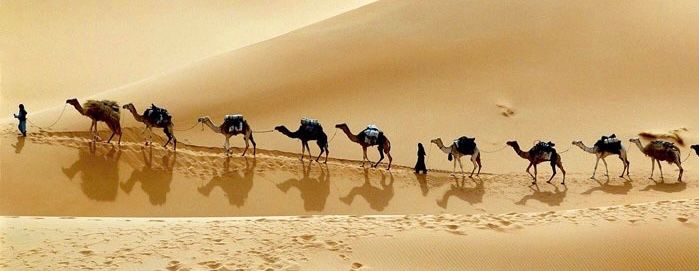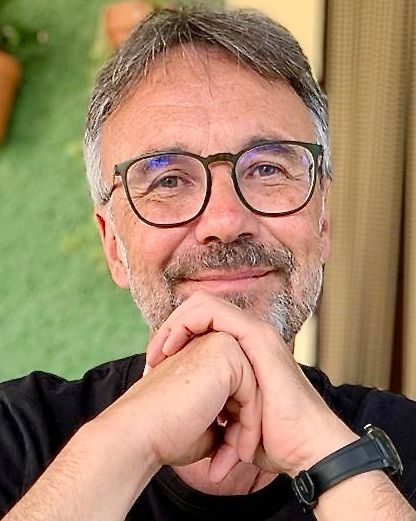At the Souk in Meknes
Argitaratu: 24.01.2023
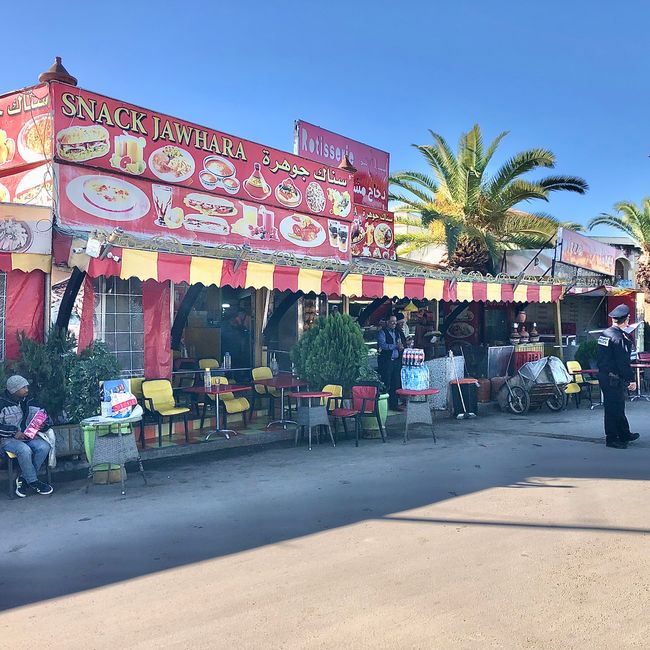
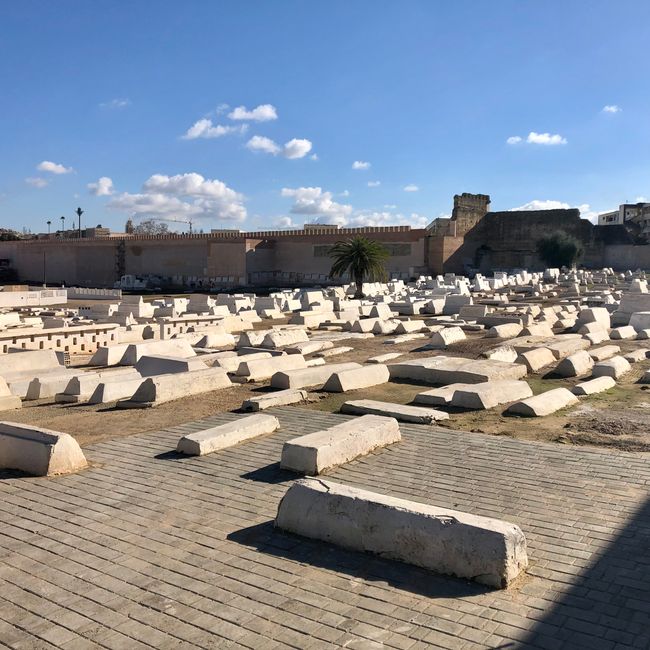
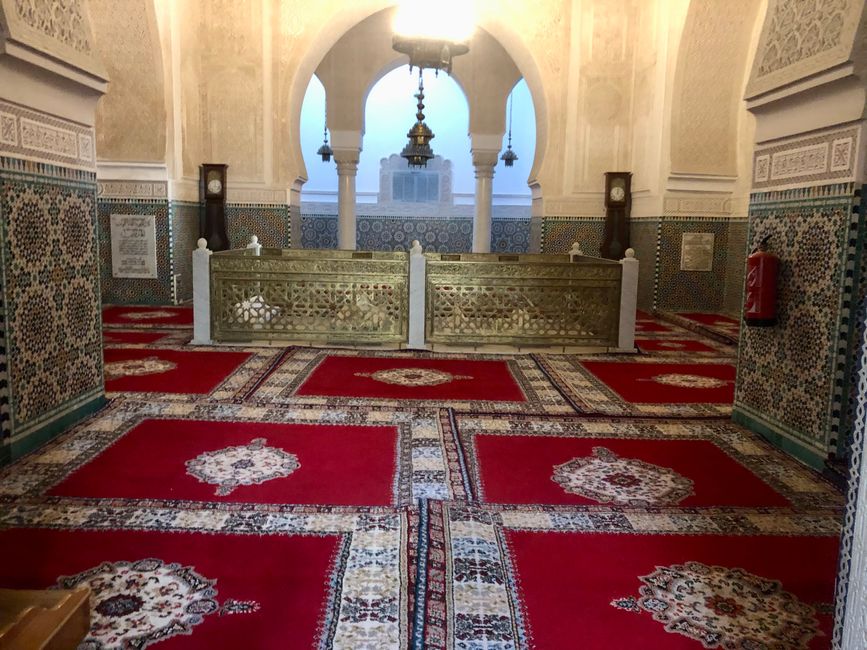
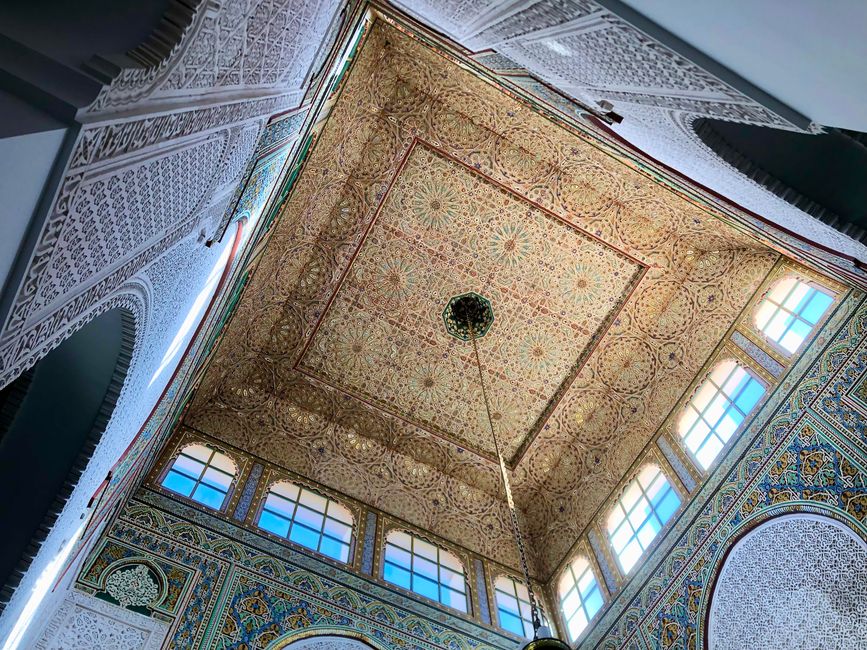
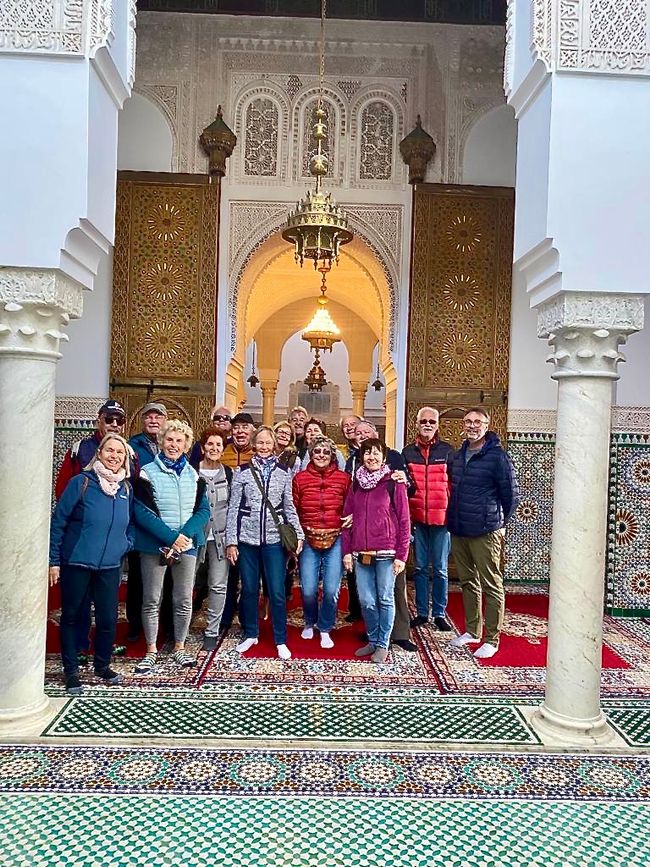
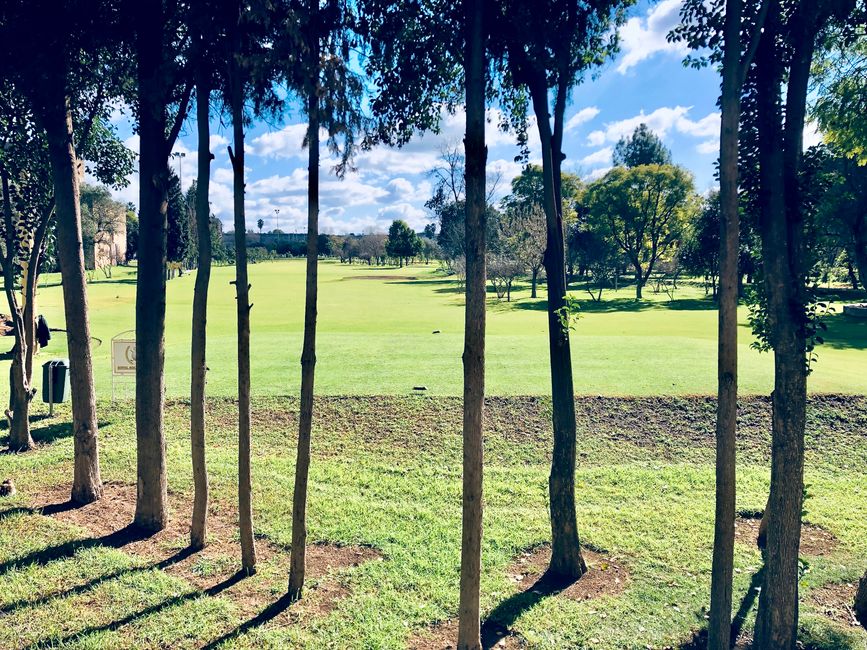
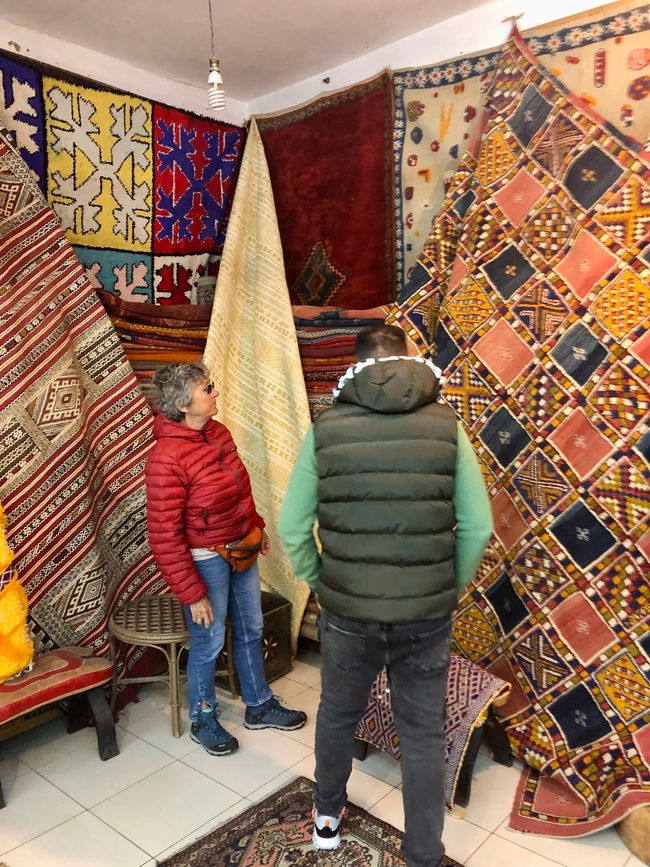
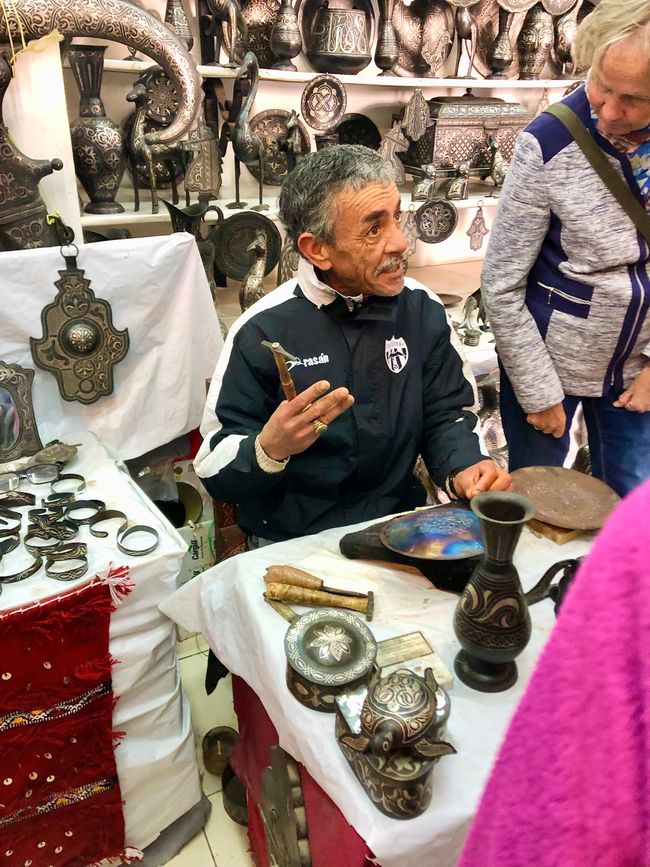
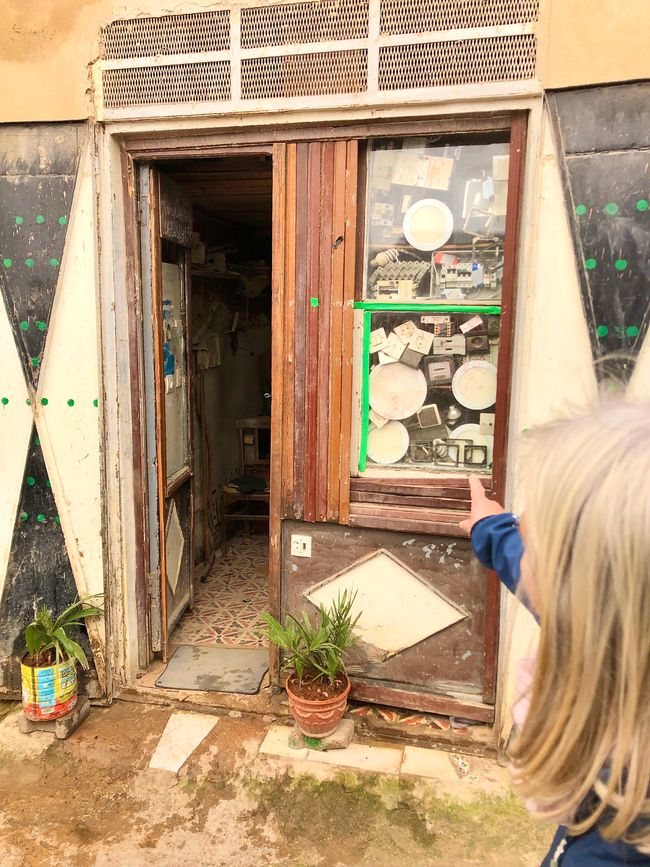
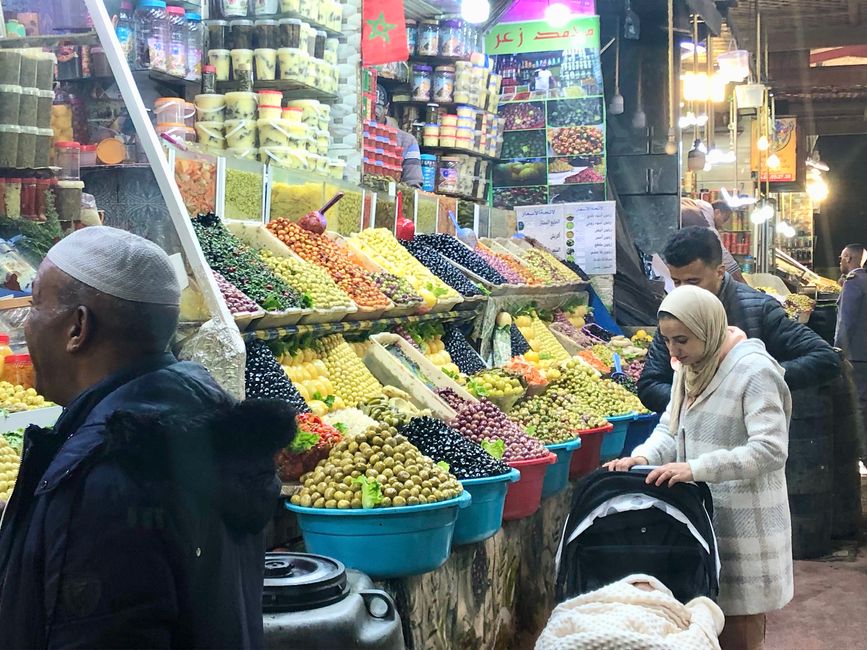
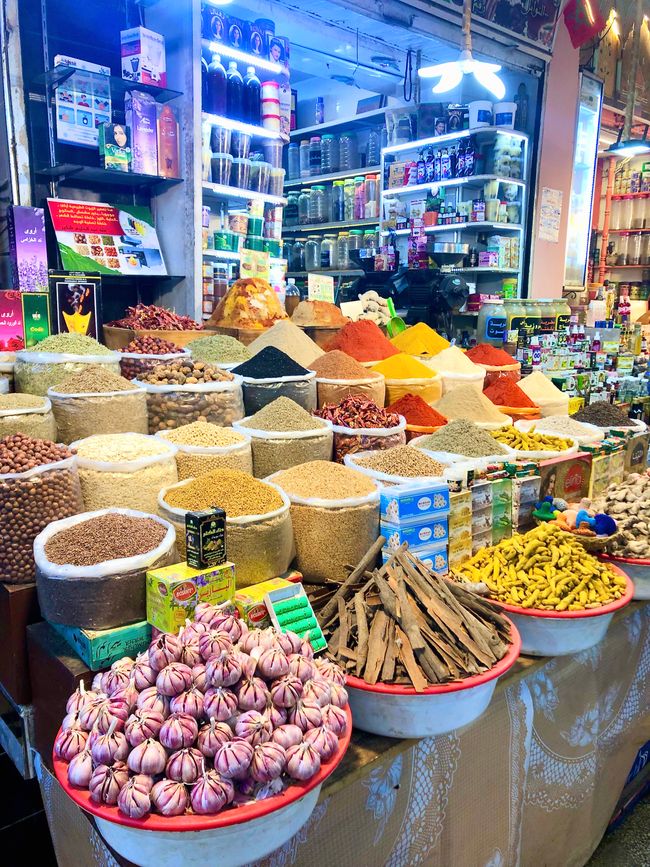
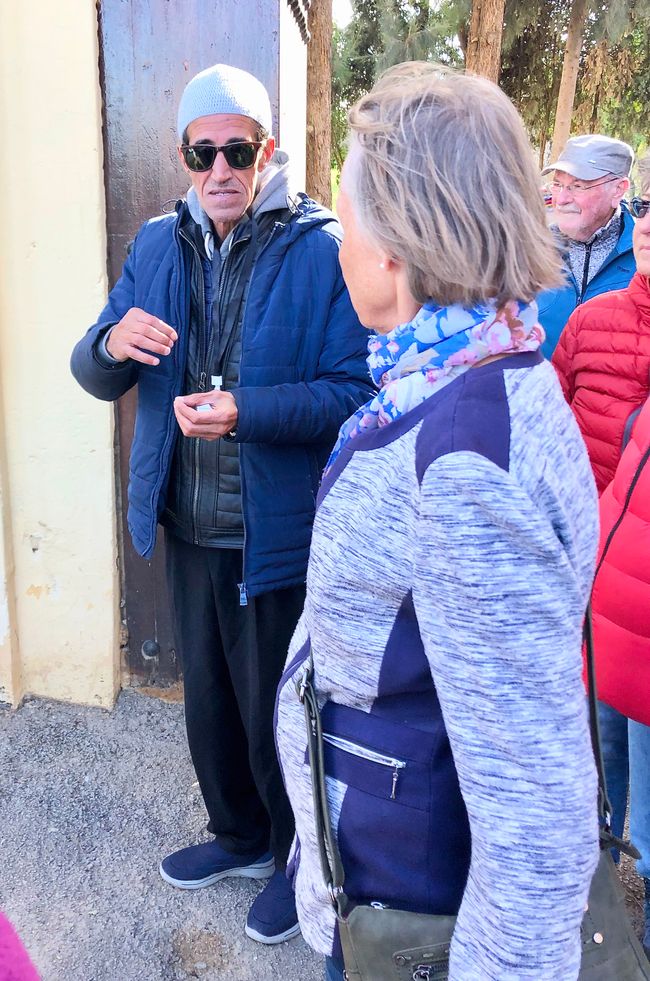
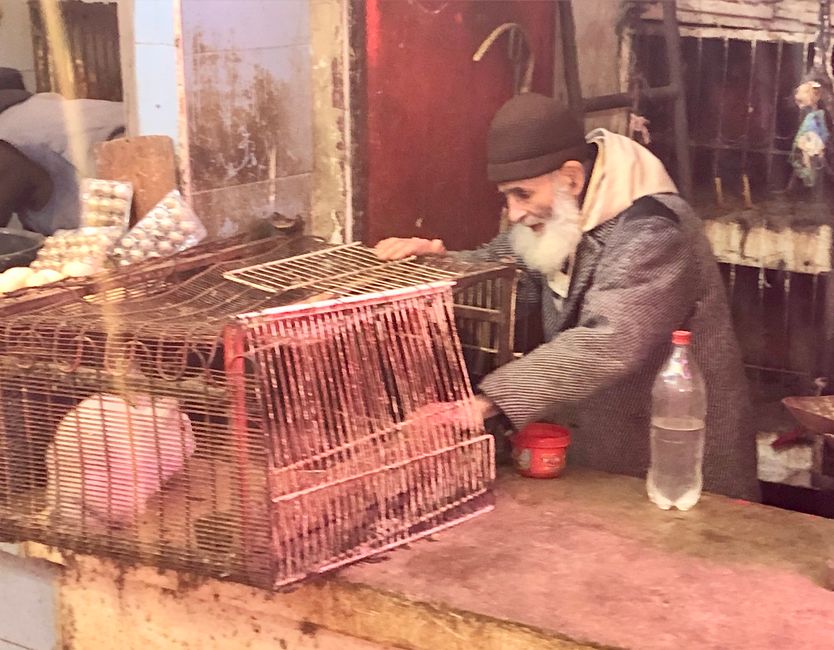
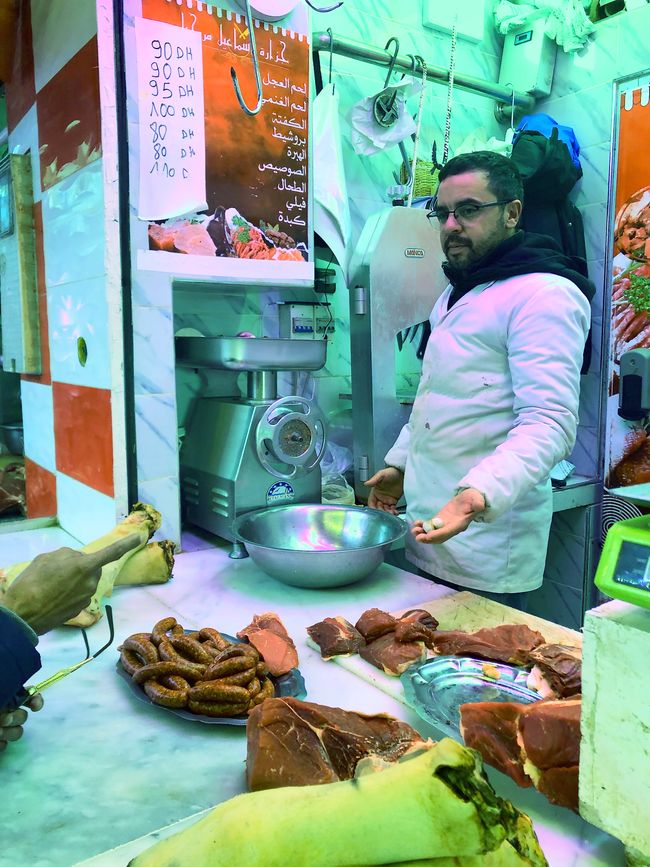
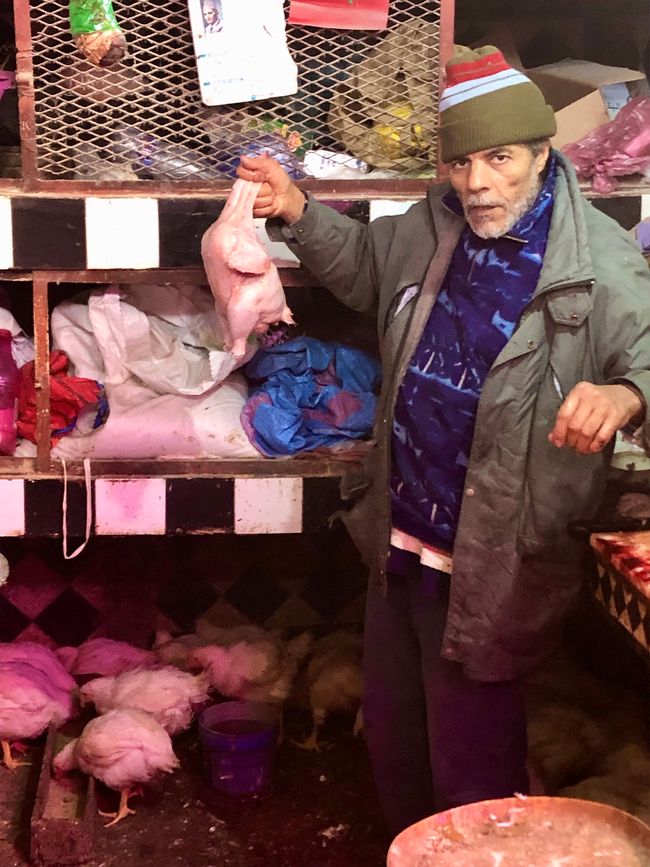
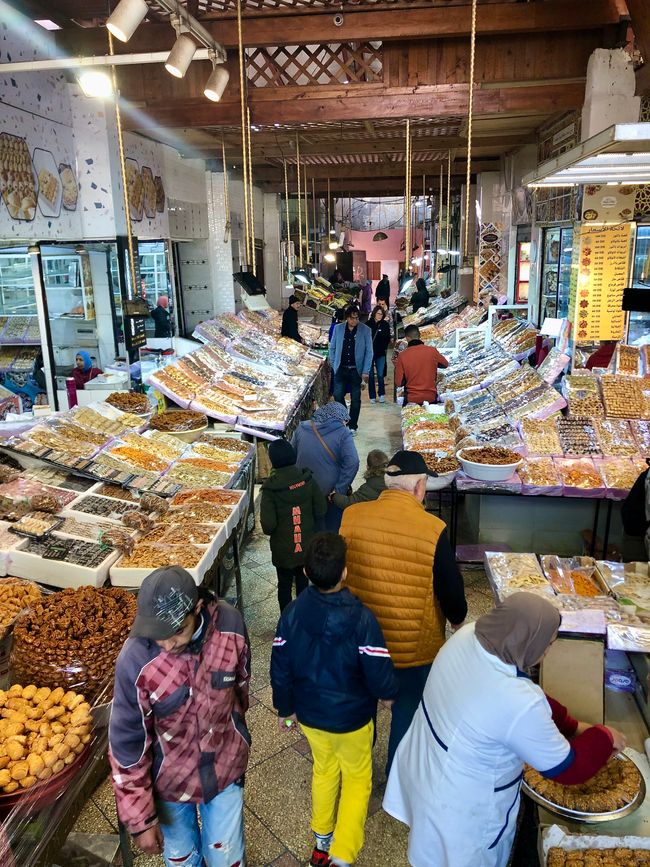
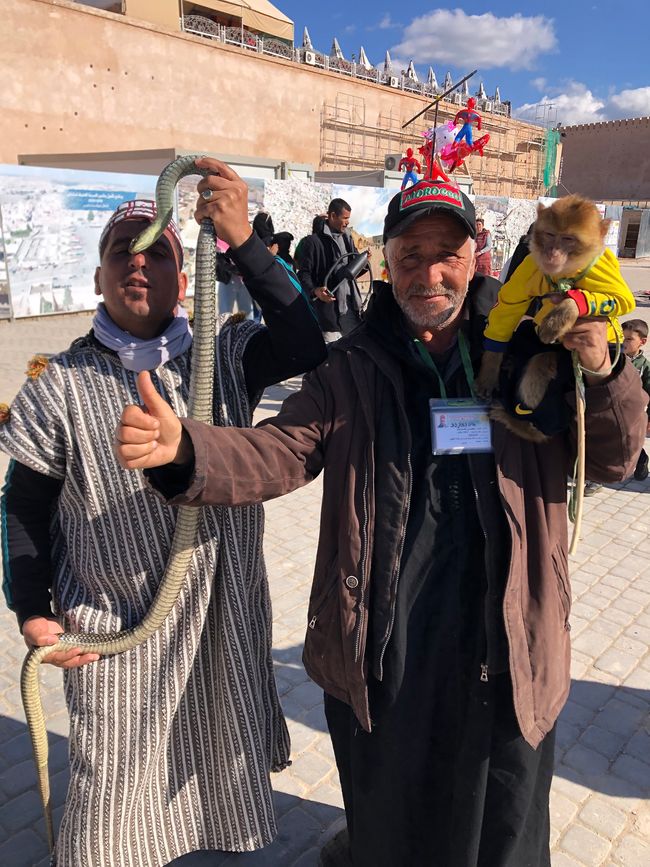
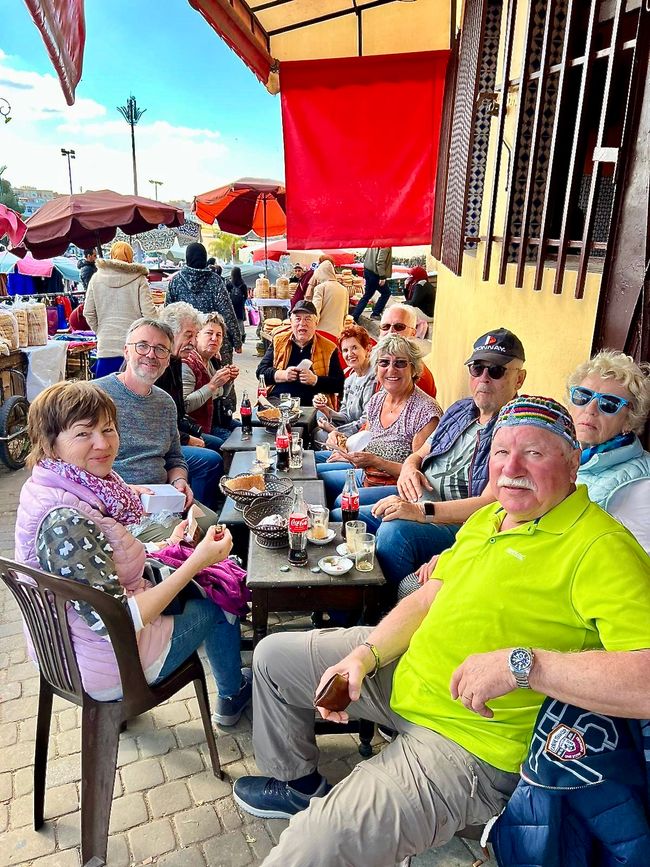
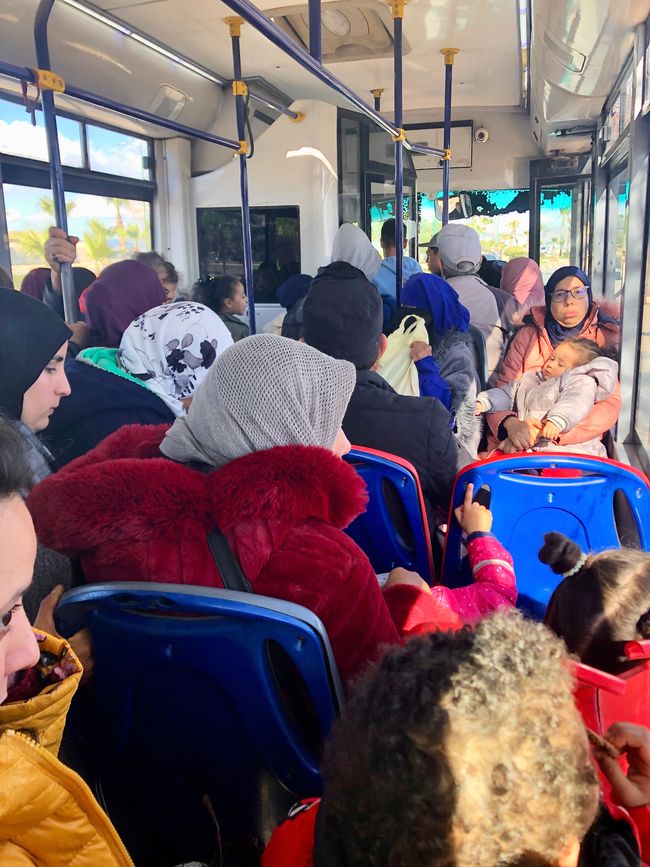
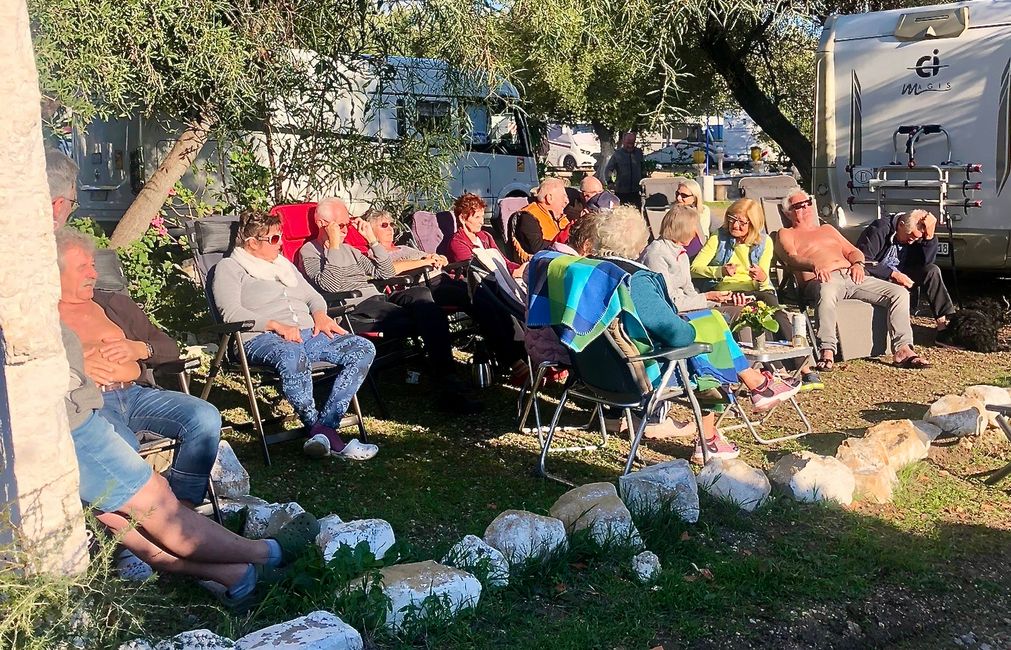
Harpidetu Buletinera
24.01.23 Meknes: Having to make things up is a torment for any writer. But the exact opposite is hardly any easier: The day in Meknes offered a fireworks display of colorful pictures, smells, impressions, and emotions that are still racing through my mind like a roller coaster.
We set off for Meknes at 10:30 am by bus - more on that later - a 750,000-inhabitant metropolis that is one of the four royal cities of Morocco. Irmi, Brigitte, and Ricci quickly found a guidebook for us, which provided quite good service with a mishmash of German, English, and French. He showed us some sights and then led us to the Souks, the daily market of Meknes. What a hustle and bustle it was! People everywhere, hawkers selling popcorn, sweets, or cigarettes among people on the ground begging for a few coins, snack stalls emitting the smell of old fat, traders with live poultry that could be slaughtered on the spot, next to butchers allowing fresh meat to run through the mincer between beef feet and veal stomachs. And in the midst of it all, jugglers with small monkeys on their arms or old men with rattlesnakes winding around their necks, offering themselves for a photo. Madness! I was fascinated, deterred, surprised, electrified - all at the same time.
Lunch promised a little rest. Our guide took us to a small restaurant that was so small that we all had to sit outside. He vouched for the cleanliness of the food and invited us to buy fresh meat with him at the Souk, which would then be prepared for us in the restaurant. Irmi and I accompanied him, and at a butcher shop around the corner, we bought one and a half kilograms of beef. It was minced in front of our eyes and mixed with various spices. Then we brought the meat to our host. Half an hour later, we were served flatbread with small sausages made from the meat. It tasted fantastic! None of us paid more than 3 euros, including a drink.
Afterwards, we took another walk in the Souk and then went to the bus stop, where we waited for Line 15. It arrived quite quickly. The bus with its 50 seats was already so full that none of us found a seat. So we stood, first quite comfortably, but every time the bus stopped, new passengers got on and we had to squeeze together. After about 15 minutes, I was pressed against the door, which opened and closed at every stop. I had to move, but where? An old woman sat at my feet, next to me stood a man with two sacks of wool and accompanied by a woman who had brought a large trolley. She stood in front of me. I had no chance. I hoped that there wouldn't be too many stops on our way, but I hadn't taken the flexibility of the Moroccans into account: The bus stopped when one of the passengers drummed on the window from the inside or someone outside waved on the street. At first, I thought they were waving at us and waved back. At some point, I noticed the man with the wool laughing whenever I waved. He gestured to me with hands and feet that it was just an invitation to the bus driver to stop. I should just stay calm. I stopped waving...
During the final briefing of the day, Ricci informed us that we would skip the planned stop in Azrou tomorrow, an old Berber town, because it is located at an altitude of 1,250 meters. It is unusually cold in Morocco these days, and we don't want to risk any problems with our gas heaters. We will continue to Midelt, which is located at the foot of the 3,750-meter-high Jbel Ayachi. As a true Bavarian, Ricci just can't get into the mountains fast enough...
Harpidetu Buletinera
Erantzun (3)
Richard
Die Stadt Meknes ist eigentlich der Einstieg ins wahre Marokko..Einige unserer Freunde staunten nicht schlecht, als wir durch die Markthalle marschierten.. Aber alle hatten dabei auch ihren Spaß ….Peter
Seid wann habt Ihr Respekt vor der Kälte?
Das haben wir doch schon alles hinter uns. Aber ist schon gut so, geht keine Risiko ein. Die Reise ist noch lang und bis jetzt war diese bestimmt auch noch nicht langweilig. Siehe Grenze usw..........Peter
Und so eine Busreise ist auch nicht zu verachten. Leider sind wir Deutschen so verwöhnt............
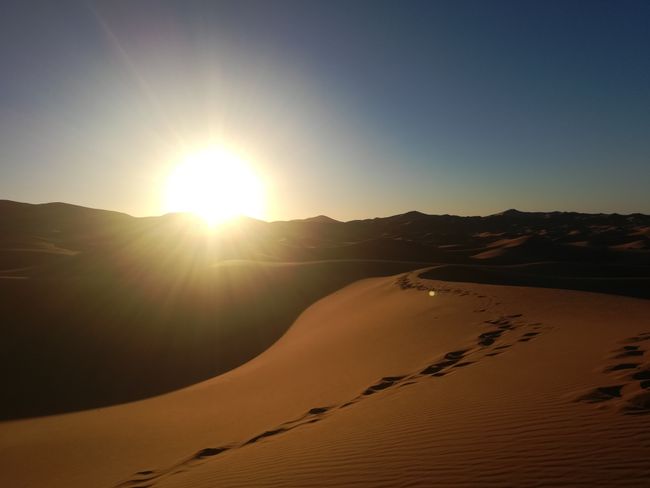
Bidaien txostenak Maroko
